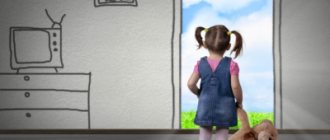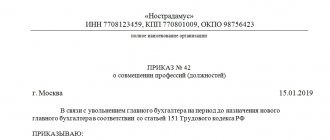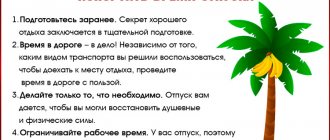The prosecutor's office explains: liability for failure to fulfill parental responsibilities
according to information from the Zheleznogorsk interdistrict prosecutor's office
23 March 2021 11:33
1 of 1 images
The prosecutor's office explains: liability for failure to fulfill parental responsibilities
© photo: israelinside.info
Those who improperly perform the duties of raising minors are liable under Art. 156 of the Criminal Code of the Russian Federation.
Olga Zhilkina, assistant to the Zheleznogorsk interdistrict prosecutor, recalled this
Improper performance of the duties of raising a minor is an action or inaction, expressed in poor quality and incomplete fulfillment of the duties of education, in the use of methods and methods of education prohibited by law (dismissive, cruel, rude, degrading treatment, insult, exploitation of a minor; the use of methods of physical and mental violence against him; and measures that are anti-pedagogical in nature: encouraging the commission of antisocial acts, instilling views and attitudes that promote cruelty and violence, aggressiveness, hatred).
“Failure to fulfill or improper fulfillment of responsibilities for raising a minor entails criminal liability only in cases where they are combined with cruel treatment, which is understood as actions that cause physical and (or) moral suffering to the teenager, or cause him mental trauma,” explains Olga Zhilkina.
Responsibility under this article of the Criminal Code of the Russian Federation arises for parents, adoptive parents or trustees, a teacher or other employee of an educational organization, a medical organization, an organization providing social services, or another organization obliged to supervise a minor (teachers, educators, doctors).
For failure to fulfill the duties of raising a minor, the following is provided: a fine of up to 100 thousand rubles. or in the amount of wages or other income of the convicted person for a period of up to one year, or compulsory work for a period of up to 440 hours, or correctional labor for a period of up to two years, or forced labor for a period of up to three years with deprivation of the right to hold certain positions or engage in certain activities activities for a term of up to five years or without it, or imprisonment for a term of up to three years with deprivation of the right to hold certain positions or engage in certain activities for a term of up to five years or without it.
Another commentary on Article 156 of the Criminal Code of the Russian Federation
1. The social danger of a crime lies in the fact that a child cannot fully take advantage of the entire range of educational, educational, and material rights that belong to him by law.
Guarantees of children's rights have a constitutional basis. So, in paragraph 1 of Art. 39 of the Constitution of the Russian Federation enshrines the provision on the protection of their rights in the field of social security, clause 4 of Art. 43 establishes the obligation of other persons acting as parents to ensure that children receive basic general education.
2. The immediate object of the crime in question is the interests of the minor in obtaining normal physical development and moral education. A victim is a person under 18 years of age whose interests have been violated.
3. The objective side is the failure or improper fulfillment by the guilty person of the duties of raising a minor or supervising him, if this act involves cruel treatment.
To bring to criminal liability it must be established: 1) what specific duties were assigned in the prescribed manner to this person; 2) which of them was not performed or performed improperly; 3) whether this person had a real opportunity (objectively or subjectively) to properly perform the assigned duties. Objective factors include, first of all, external conditions, the creation of which does not depend on a given person. Subjective ones include the personal characteristics of a given person: experience and qualifications, level of education, ability to provide the full scope of duties and their proper quality, etc.; 4) whether the actions (inaction) of the person are accompanied by cruel treatment of the minor.
Identification of any of the objective or subjective factors indicating the actual impossibility of fulfilling or improper fulfillment of the duties of raising or supervising a minor, and the absence of signs of ill-treatment of him exclude criminal liability under Art. 156 of the Criminal Code of the Russian Federation.
Failure to comply is a failure to take actions to educate a minor, failure to take measures that the guilty person should have taken by virtue of his duties. It is impossible to blame the failure to carry out those actions that were not part of the duties of the person held accountable.
This is interesting: What does a pension certificate look like in 2021?
Improper fulfillment of responsibilities for raising a minor is considered to be unclear, careless, formal, untimely, incorrect, or incomplete implementation.
Failure to fulfill and improper fulfillment of duties to raise a minor can be one-time and systematic, i.e. characterize a certain line of behavior of the perpetrator.
Cruel treatment is understood as a certain line of behavior of the perpetrator, expressed both in his active actions towards a minor (imprisonment, beating, bullying, beating, torture, etc.) and inaction (failure to provide food, clothing, etc. .), bringing physical or mental suffering to the victim.
If, as a result of ill-treatment, harm to health was caused (intentional light, moderate or serious), as well as torture, the actions of the perpetrator are subject to additional qualification for the totality of crimes provided for in Art. 156 of the Criminal Code and relevant articles of the Criminal Code.
Beatings and any careless infliction of harm to the health of a minor are covered by the category of cruel treatment” and do not require additional qualifications under the relevant articles of the Criminal Code.
4. The subject of the crime is special. We are talking about a sane person who has reached the age of 16 and is a parent or other person who is entrusted with the responsibility of raising a minor, as well as a teacher or other employee of an educational, training, medical or other institution who is obliged to supervise the minor.
Supervision is understood as both direct supervision over the actions of a minor in this particular case, and his upbringing in general.
5. Failure to fulfill the duties of raising a minor is an intentional crime: the perpetrator realizes that through cruel treatment he is grossly violating the duties of raising a minor, and wants to commit these actions.
6. Officials of an educational, training, medical or other institution, if they exceed their official powers, are subject to liability under Art. 286 of the Criminal Code.
7. The act provided for in Art. 156 of the Criminal Code, should be distinguished from that provided for by administrative legislation (Article 5.35 of the Code of the Russian Federation on Administrative Offences), where the possibility of bringing to administrative responsibility is not associated with cruel treatment.
Comments and legal advice on Article 156 of the Criminal Code of the Russian Federation
If you have any questions regarding Article 156 of the Criminal Code of the Russian Federation, you can get advice from the lawyers of our service.
You can use the contact form or by phone. Initial consultations are free and are held from 9:00 to 21:00 daily Moscow time. Questions received between 21:00 and 9:00 will be processed the next day.
Commentary to Art. 156 of the Criminal Code of the Russian Federation
1. The object of the crime provided for in Art. 156 of the Criminal Code, there are social relations associated with ensuring the necessary physical, mental, spiritual, moral and social development of a minor. An additional object is the health of the minor.
According to Art. 27 of the UN Convention on the Rights of the Child of November 20, 1989, the parent(s) or other persons raising the child bear the primary responsibility for ensuring, within the limits of their abilities and financial resources, the living conditions necessary for the development of the child. Article 63 of the RF IC gives parents the right and obligation to raise their children, as well as bear responsibility for their upbringing and development, take care of their health, physical, mental, spiritual and moral development. According to Art. 65 of the RF IC, ensuring the interests of children should be the main concern of their parents. When exercising parental rights, parents do not have the right to cause harm to the physical and mental health of children or their moral development. Methods of raising children must exclude neglectful, cruel, rude, degrading treatment, insult or exploitation of children.
2. The objective side of the crime is expressed in the improper performance or failure to fulfill the duties of raising a minor, assigned to a person by law, regulations, combined with cruel treatment of a minor by the persons specified in the disposition of this article (a parent or other person entrusted with these duties , as well as a teacher or other employee of an educational, training, medical or other institution obliged to supervise a minor).
3. A mandatory sign of the objective side is cruel treatment of a minor, which can be expressed in beating, bullying, humiliation of human dignity, denial of food, restriction of freedom of movement, etc. According to paragraph 11 of the Resolution of the Plenum of the Armed Forces of the Russian Federation dated May 27, 1998 N 10, cruel treatment of children can manifest itself not only in the implementation by parents of physical or mental violence against them or in an attempt on their sexual integrity, but also in the use of unacceptable methods of education (rough, neglectful, degrading treatment of children, abuse or exploitation of children).
If the failure of parents or other persons specified in the disposition of Art. 156 of the Criminal Code, the duties of raising minors are not associated with cruel treatment of them, then criminal liability is excluded, since these actions constitute an offense under Art. 5.35 Code of Administrative Offenses of the Russian Federation.
In cases where ill-treatment forms an independent crime, for example, causing harm to health of varying severity, beatings, torture, etc., such actions should be classified as a set of crimes under Art. Art. 115, 112, 111, 116, 117 CC, etc.
4. The subjective side of the crime is characterized by direct intent. At the same time, the person realizes that he is not fulfilling or improperly fulfilling his responsibilities for raising a minor, as well as his cruel treatment of him, and wants to commit these actions.
5. The subjects of this crime are the same persons as those listed in Art. Art. 150, 151 CC.
For example, by a court verdict, I. was found guilty of failure to fulfill the duties of raising minor children and the murder of her six-month-old daughter, who was known to the guilty person to be in a helpless state, committed with particular cruelty, and was convicted under clauses “c”, “d” .2 tbsp. 105 and art. 156 of the Criminal Code.
This is interesting: Financial support for small businesses
In the cassation appeal, the convicted woman’s lawyer asked the court’s verdict to be overturned and the case to be terminated, since the convicted woman did not have an indirect intent to kill the child, she took measures to treat him.
The Judicial Collegium for Criminal Cases of the Armed Forces of the Russian Federation changed the verdict and reclassified the actions of the convicted person from clauses “c”, “e”, part 2 of Art. 105 of the Criminal Code on Part 1 of Art. 109 of the Criminal Code, motivating the decision as follows.
The court of first instance came to the conclusion that as a result of I.’s failure and improper performance of parental duties, her daughter developed infectious diseases of the upper respiratory tract and skin, and the development of severe malnutrition.
As a result of severe infectious damage to the skin, the subsequent development of a general infectious disease - sepsis with symptoms of septic shock and multiple organ failure, severe malnutrition, the death of the convict's six-month-old daughter occurred.
The court, qualifying I.’s actions under clauses “c”, “e”, part 2 of Art. 105 of the Criminal Code, indicated in the verdict that the culprit was aware of the social danger of her inaction, foresaw the possibility of socially dangerous consequences in the form of the death of her young daughter, did not want, but was indifferent to the occurrence of these consequences, and concluded that I. intentionally caused death the victim.
However, from the testimony of the convict it follows that she treated her daughter on her own, gave paracetamol, put on Efferalgan baby suppositories, thought that she was teething, her daughter did not eat, regurgitated food, lost weight, she smeared the victim with brilliant green, gave her juice, the intent to take the life of her daughter Did not have.
This testimony of the convicted woman in the verdict was not refuted, but, on the contrary, from the testimony of the forensic expert and others, it is clear that some kind of assistance was provided to child I.
Under such circumstances, the Judicial Collegium of the RF Armed Forces came to the conclusion that the convicted person did not foresee the possibility of causing the death of the victim as a result of her actions, but due to the circumstances of the case she should have and could have foreseen this. ——————————— See: Determination of the Armed Forces of the Russian Federation dated February 17, 2009 N 5-O09-18; Review of legislation and judicial practice of the Supreme Court of the Russian Federation for the second quarter of 2009, approved by the Resolution of the Presidium of the Supreme Court of the Russian Federation dated September 16, 2009 // BVS RF. 2009. N 11 (extract).








